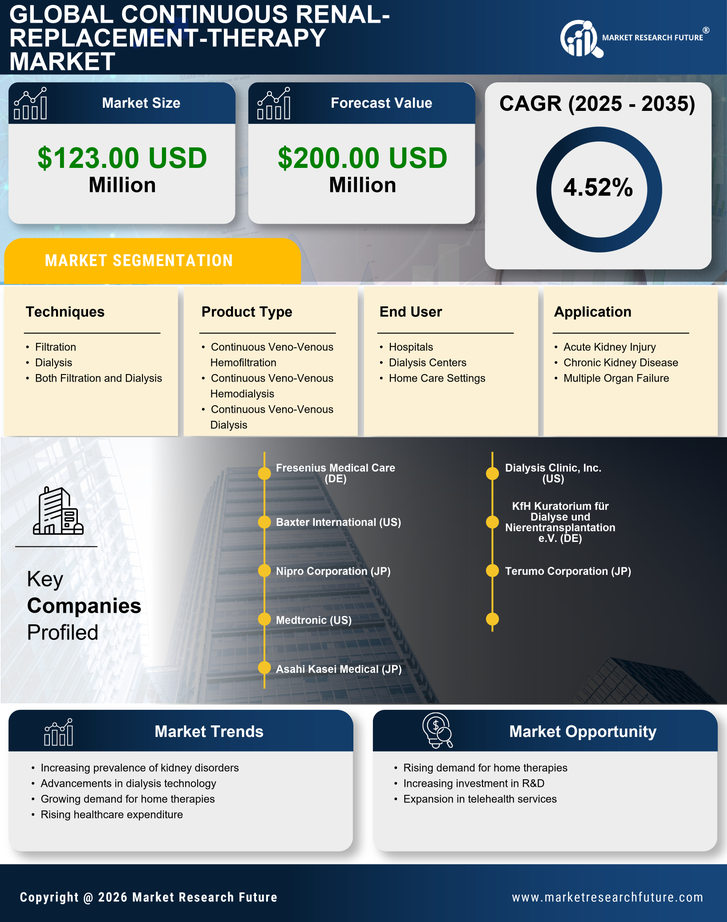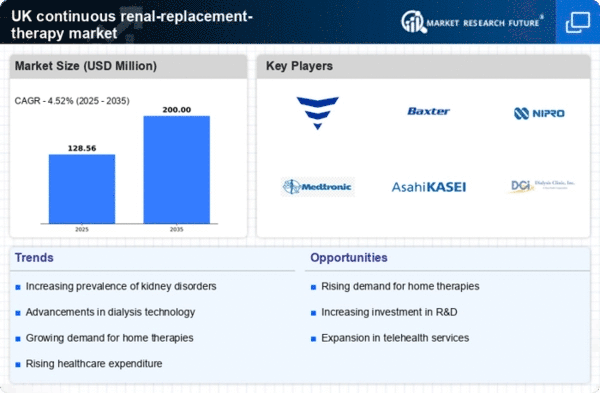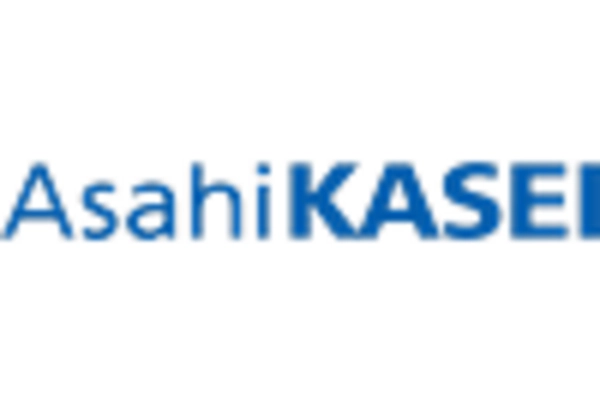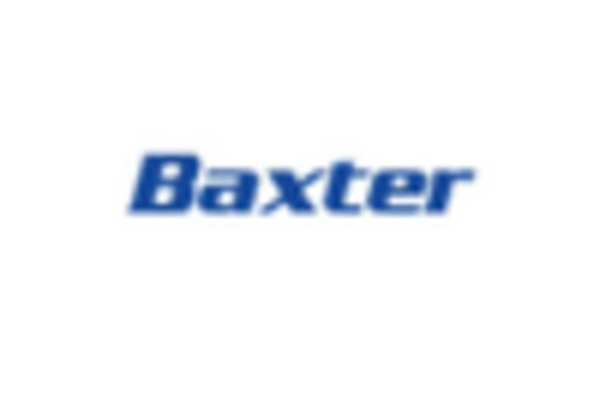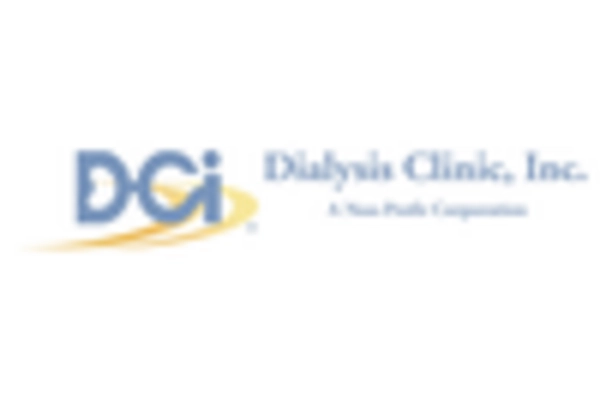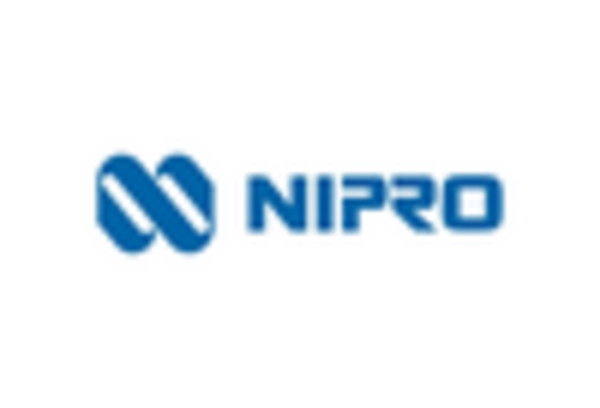Growing Geriatric Population
The demographic shift towards an aging population in the UK is a significant driver for the continuous renal-replacement-therapy market. As individuals age, the risk of developing kidney diseases increases, necessitating effective renal replacement therapies. Projections indicate that by 2030, the number of individuals aged 65 and older will rise substantially, leading to a corresponding increase in the demand for renal care services. This demographic trend suggests that healthcare providers will need to adapt their services to accommodate the needs of older patients, thereby driving growth in the continuous renal-replacement-therapy market. The implications for healthcare systems are profound, as they must prepare for the rising demand for specialized renal therapies.
Government Funding and Support
Government initiatives and funding significantly impact the continuous renal-replacement-therapy market in the UK. The NHS has been actively investing in renal care services, recognizing the burden of kidney diseases on the healthcare system. Increased funding for research and development of renal therapies is likely to enhance treatment options available to patients. Furthermore, policies aimed at improving access to renal replacement therapies can lead to a broader adoption of continuous renal-replacement-therapy solutions. The UK government has allocated millions of £ towards enhancing renal services, which may stimulate market growth and innovation in the continuous renal-replacement-therapy market.
Increased Awareness and Education
There is a growing awareness regarding kidney health and the importance of early intervention, which positively influences the continuous renal-replacement-therapy market. Educational initiatives aimed at both healthcare professionals and the general public are crucial in promoting understanding of kidney diseases and available treatment options. This heightened awareness is likely to lead to earlier diagnoses and increased referrals for renal replacement therapies. In the UK, campaigns by health organizations have resulted in a notable increase in screening for kidney diseases, which may contribute to a rise in demand for continuous renal-replacement-therapy solutions. Consequently, this trend is expected to bolster market growth as more patients seek timely and effective treatment.
Rising Incidence of Kidney Diseases
The continuous renal-replacement-therapy market is experiencing growth due to the increasing prevalence of chronic kidney diseases (CKD) in the UK. Reports indicate that approximately 3 million individuals in the UK are affected by CKD, leading to a heightened demand for renal replacement therapies. This trend is further exacerbated by an aging population, where the incidence of kidney-related ailments tends to rise. As healthcare providers seek effective treatment options, the continuous renal-replacement-therapy market is positioned to expand, catering to the needs of patients requiring long-term renal support. The financial implications are notable, with the NHS allocating substantial resources to manage kidney disease, thereby driving investments in advanced renal therapies.
Technological Innovations in Dialysis
Technological advancements play a pivotal role in shaping the continuous renal-replacement-therapy market. Innovations such as improved dialysis machines and biocompatible membranes enhance treatment efficacy and patient comfort. The introduction of automated systems and remote monitoring capabilities allows for better management of therapy, potentially reducing hospital stays and associated costs. In the UK, the market for dialysis equipment is projected to grow at a CAGR of around 5% over the next few years, reflecting the increasing adoption of these technologies. As healthcare facilities upgrade their equipment to meet modern standards, the continuous renal-replacement-therapy market is likely to benefit from this trend, ensuring better patient outcomes.
